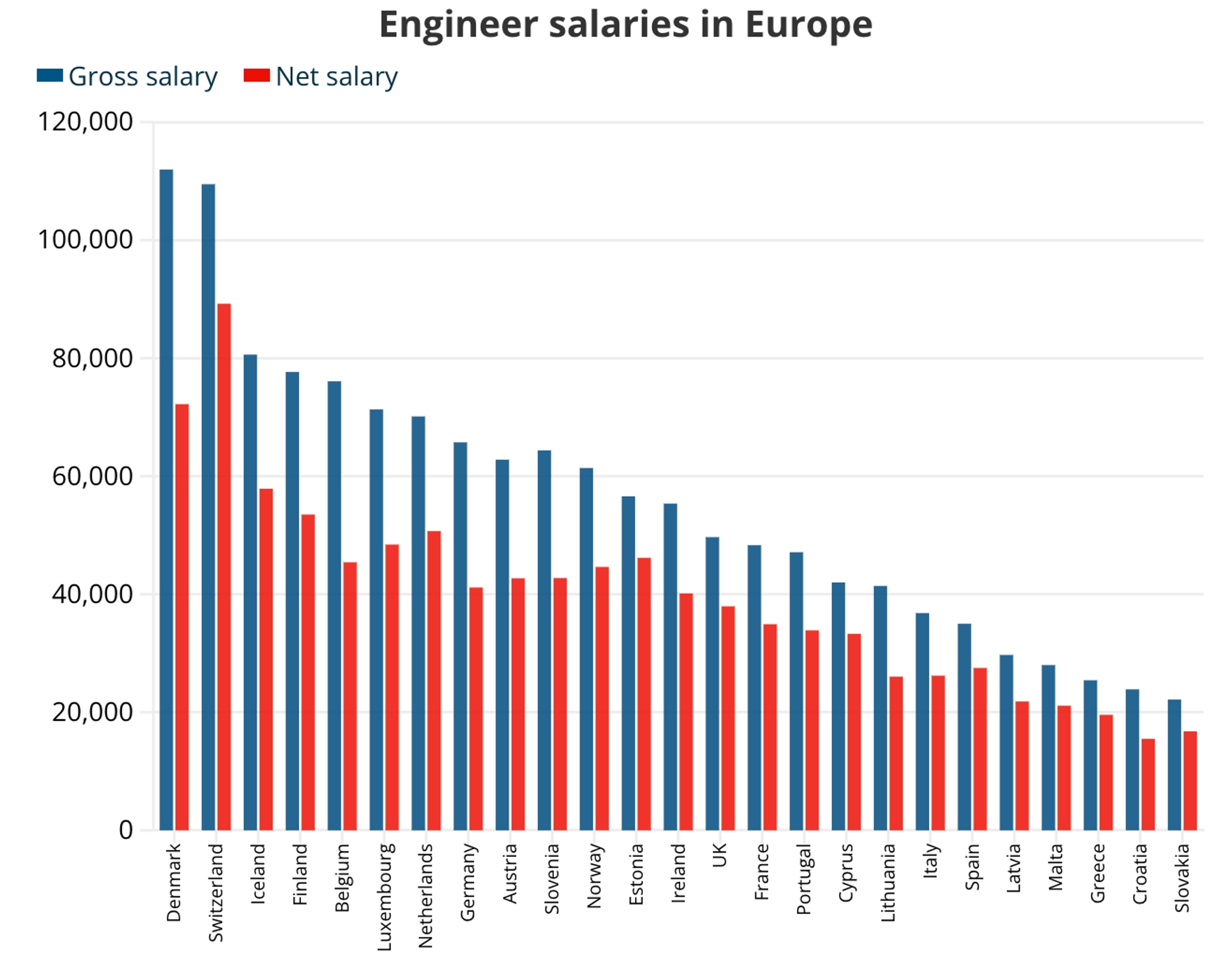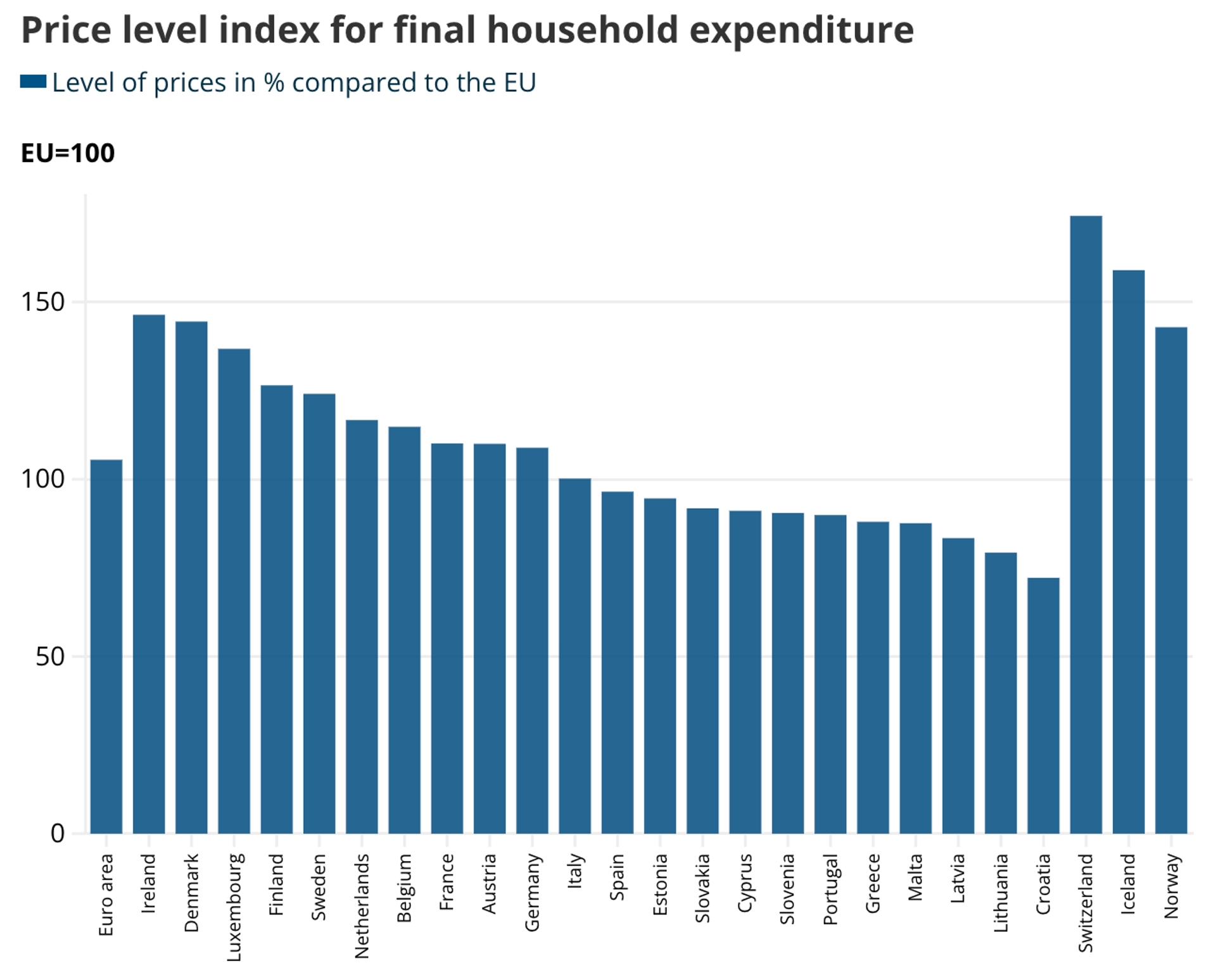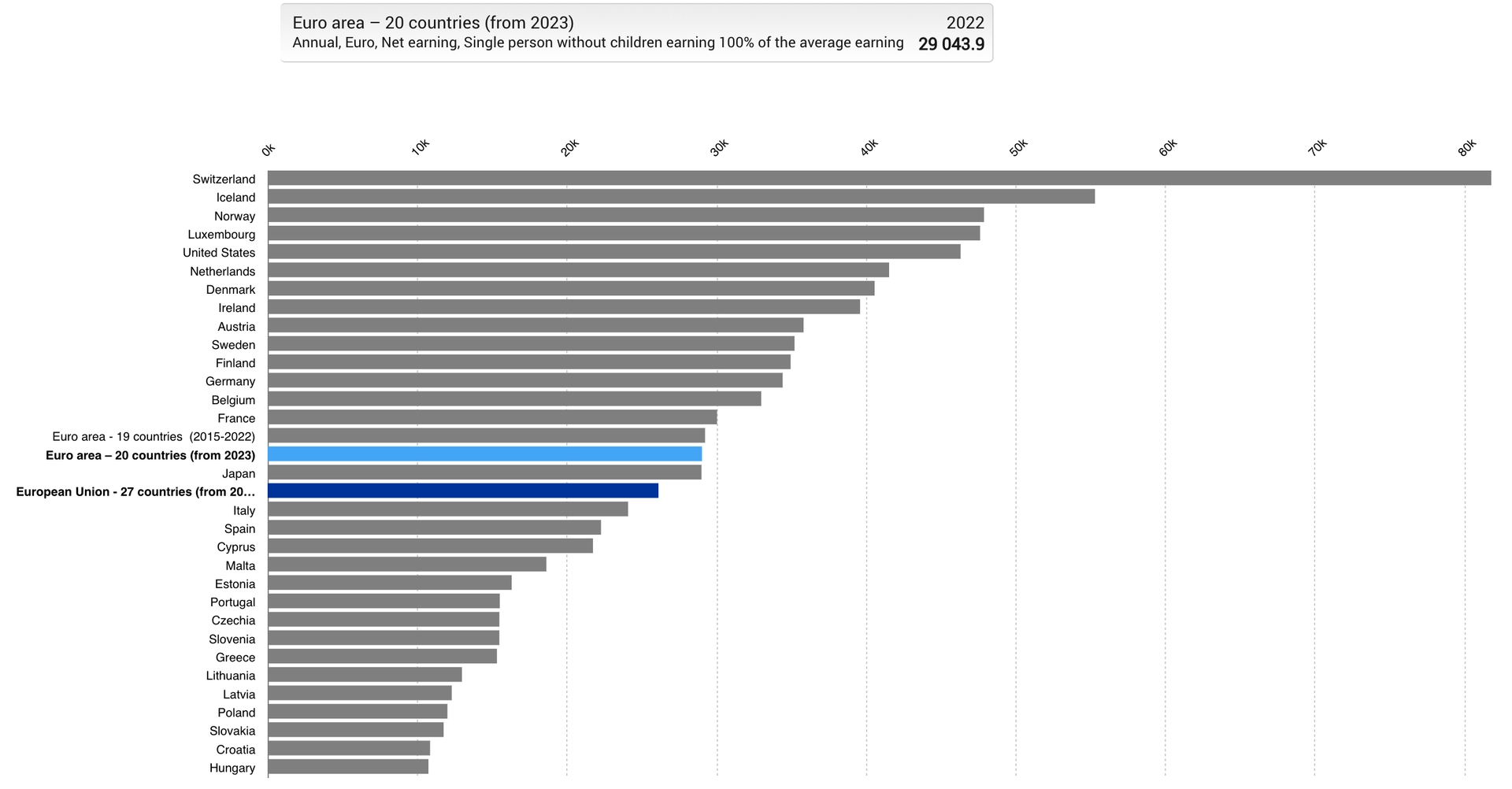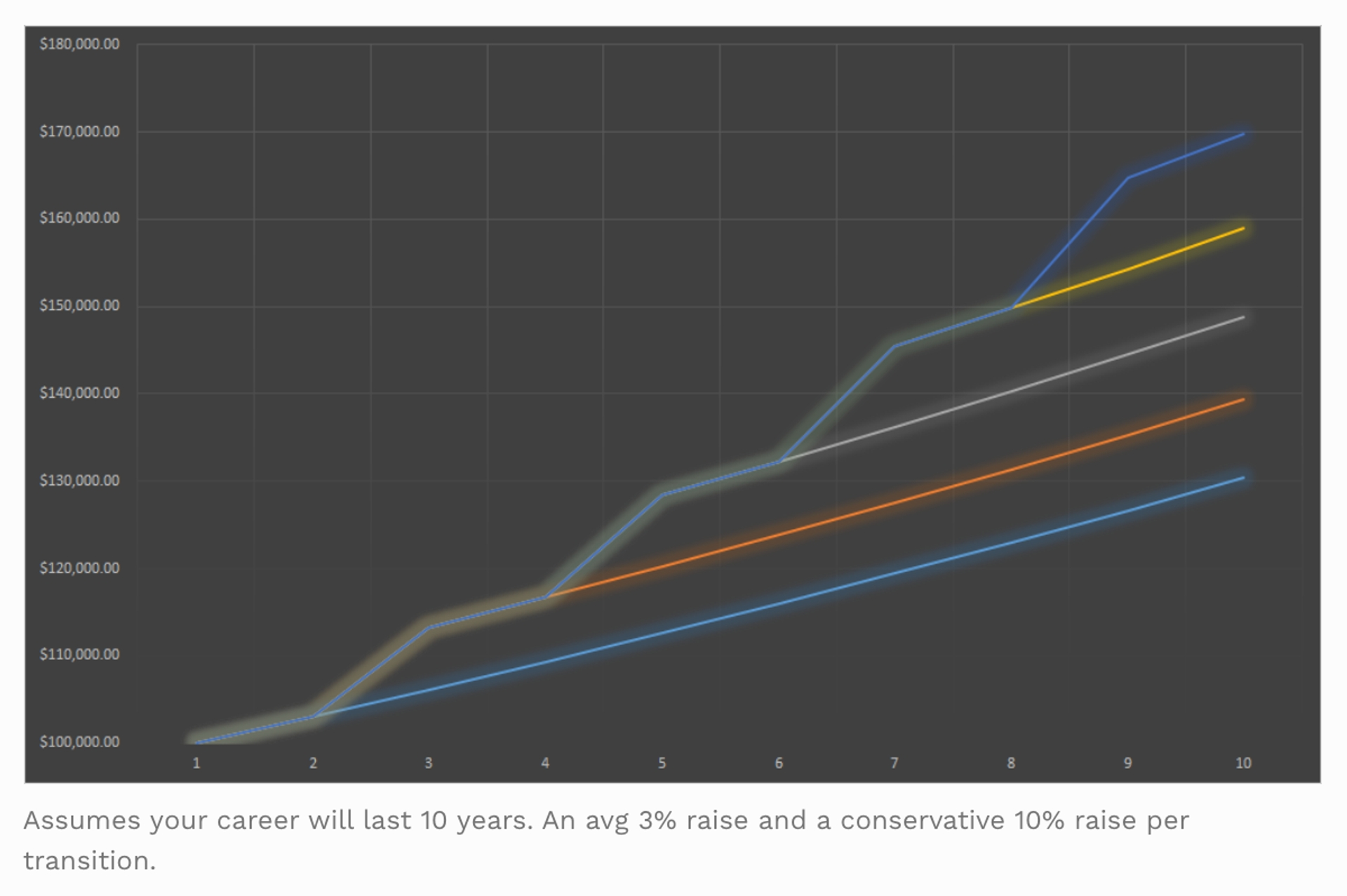8 min. read
Real salaries of an Engineer in Europe
Hey guys, in this article, we will talk about the real engineer salary levels in Europe. I’m Alex, a professional engineer with over 17 years of experience, a certified career coach, and a certified professional resume writer.
First, let's look at statistics from official EU websites, and then I'll share my own observations. I frequently interact with engineers in my roles as both an engineer and a coach, so I have a good sense of engineer salaries across different European countries and experience level ranges.
In the EU, engineers in Switzerland can expect an annual median salary after taxes of over 89,000 euros, the highest in Europe. The average annual salary after taxes for an engineer in the EU is just over 39,500 euros. Low salaries are due to high taxes in the EU, which can range from 30–50% depending on the country. Overall, Europe is not the best place for accumulating wealth!

The cost of living and inflation rates are also factors including housing, education, and healthcare that affect how much of your salary you actually take home. Looking at the EU statistics chart showing average price ranges across Europe, Switzerland, where prices are more than 174% of the European average, might not seem so attractive, right...

Comparing engineer salaries to other professions in the EU, the average salary is only 29,000 euros, while the average engineer salary is 39,500 euros, which is 35% higher. However, that salaries across Europe vary significantly by country, sector, and experience level.

I'd also like to share international statistics on the number of engineers in different countries. For example, in 1960, the most engineers were in the USA — almost 600,000.

But by 2021, India leads with almost 64 million engineers, followed by China with 59 million, and the USA with 33 million.

Now, let me share my observations about salaries in Europe.
One interesting thing in Europe is that contractors often get paid more than local employees. I have many friends in various European countries, mostly experienced engineers with 7–8 or more years of experience level, but also some entry level specialists. I can say that salary levels are quite consistent. You won't find a situation where one engineer in a company earns 2,000 euros a month while another earns 15,000 euros a month.
The average salary for an oil and gas engineer on a local contract is about 3,000–4,000 euros a month after taxes. I explained in this video the difference between a local and an expat, so watch that to understand better. If you're hired as an expat contractor, your salary can be 7,000–8,000 euros a month net. But these contracts are usually short-term, around one or two years.
I have received multiple offers from European countries like Sweden, Italy, Spain, and others, offering around 7,000 euros a month. However, what I don't like about Europe is that they rarely offer relocation packages for your family. So, while the company pays you 7,000 euros, you have to relocate your family, rent a house, pay for school, insurance, and expensive healthcare out of the salary.
For European citizens, especially young entry level specialists, salaries after taxes are around 1,500–2,000 euros a month. And considering the cost of living, in many European countries, you will barely make ends meet on 2,000 euros a month. It will be a very modest life, and I can't imagine how a family with kids would manage on that amount.
In the IT sector, for example, software engineer and machine learning specialists often have higher salaries than traditional engineers. The growing field of information technology means that professionals with coding and automation skills earn significantly more.
As an engineer with over 17 years of experience, I find it disappointing that our profession is undervalued in the job market. That's why I started improving myself, becoming a Chartered Engineer, European Engineer, Certified Maintenance and Reliability Professional and obtained other international certifications. Since 2018 I've been working in Arab countries with no taxes, and my salary has increased about 10 times compared to what I earned before. So guys, appreciate your work and time.
I've mentioned this in another article, but I'll share again how you can double or more your salary in a year. According to Forbes, people who change jobs more frequently tend to have higher salaries over 10 years than those who stay in one place.

A simple tip to increase your salary is to find a new job. Companies usually offer 20–30% more than your current salary, and if you negotiate well and if your current salary is low, you might get 50–70% more. And if the new job is overseas, you can instantly increase your salary several times. Once you get the new job, start looking for another, and in 2–3 months, you might find another job offering 20–30 or 50% more. This way, you can increase your salary several times within a few months.
This is not just a theory but a practical and proven method. Of course, don’t change it too often and become a job hopper and ruin your resume and career. Also, you don't have to list all short-term jobs in your resume.
That’s all for now, goodbye!
Make your move!
Unlike generic resume builders, we provide industry-specific templates, intelligent suggestions for technical skills, and a streamlined interface that simplifies the resume creation process.
CREATE RESUMERecent Posts
Pub: 11 Dec 2025
7 min. read
Expat Job Search Secrets: How to Find Jobs in Canada, Europe, and Australia

